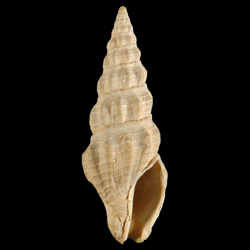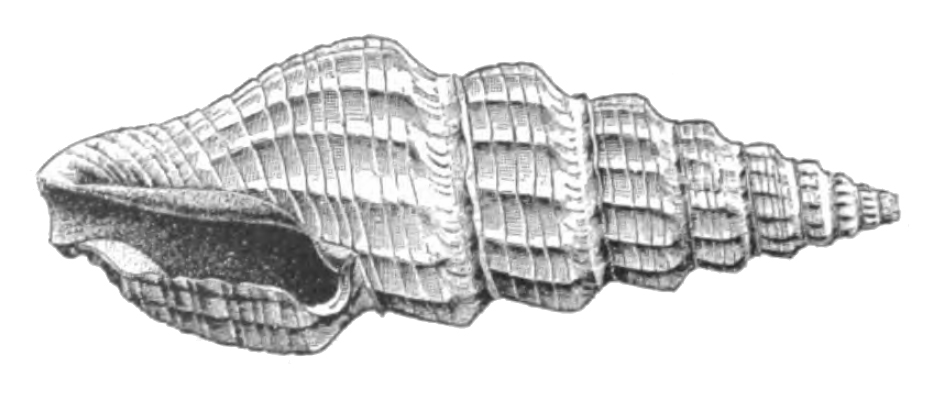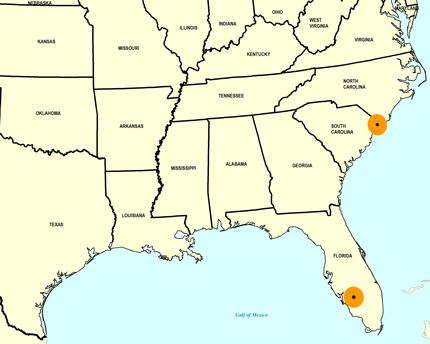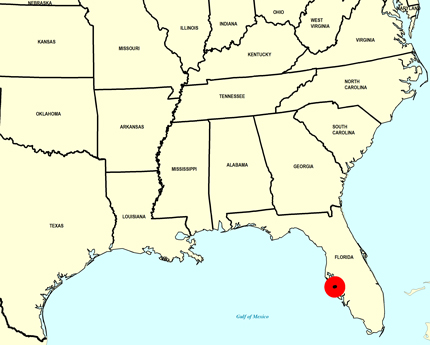
Pyrgospira acurugata

- Phylum: Mollusca
- Class: Gastropoda
- Order: Neogastropoda
- Family: Pseudomelatomidae
- Genus: Pyrgospira
- Species: Pyrgospira acurugata (Dall, 1890)
Geological Range
Late Pliocene to Early Pleistocene; Extinct.
Paleogeographic Distribution
Southern Florida to South Carolina.
Remarks
Original Description (from Dall, 1890, p. 32):
"Caloosahatchie beds, one specimen.
Shell strong, with nine or ten whorls beside the smooth nucleus; spiral sculpture of fine scratches on the fasciole, sharp, usually paired, grooves on the body with wider and alternately broad and narrow rounded interspaces which are subnodulous in the line of the transverse ribs; these nodulations are higher on the posterior margin of the interstitial bands, so that with the canal pointing vertically the base of the shell looks like a tiled roof on a cupola; there is a moderately elevated round thread in front of the suture and more or less undulated by the ends of the ribs behind it; on the siphonal fasciole there are a few fine threads; transverse sculpture of (on the last whorl fifteen) moderately elevated ribs, beginning and strongest on the shoulder of the whorl and fading away anteriorly near the canal; on the base they are slightly nodulous between the spiral grooves; anal fasciole excavated but slightly undulate behind the ribs and marked by fine incremental lines; notch not deep but distinct and U-shaped; canal short, wide; aperture rather narrow, with a moderate callus on the pillar and no lirae on the outer lip. Max. Ion. of shell 21.2; max. lat. 8.0 mm.
This is nearest to D. abundans and the preceding, but is less drawn out and has a sharper and different sculpture."
To access this description in its original formatting through the Biodiversity Heritage Library, click here.
Stratigraphic Occurrences
- Early Pleistocene
- Caloosahatchee Formation (S. FL)
- Waccamaw Formation (SC)
- Late Pliocene
- Tamiami Formation (Pinecrest Beds) (S. FL)



